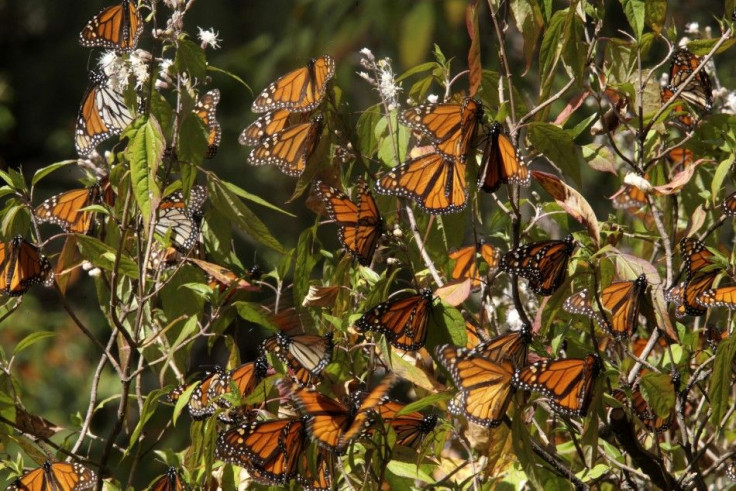Monarch Butterfly Population Continues Steady Decline

Monarch butterflies are in jeopardy as populations continues to dwindle, researchers announced Wednesday. Monarch populations dropped off sharply in 1997, coinciding with the adoption of herbicide resistant crops, and populations continued to dwindle ever since, researchers argued.
Milkweed, the only plant monarchs will lay eggs on, is in short supply. Unless it is planted judiciously, the monarch population could be lost forever, researchers said.
Researchers estimate monarch populations during its hibernation season in Mexico each winter. Monarch populations during the 2011-2012 season decreased 25 to 30 percent from the 2010-2011 population and represent the fourth smallest population on record, according to Monarch Watch, an educational outreach program based out of the University of Kansas. The 2011-2012 population marks the eighth consecutive year of monarch populations below the average expected.
Last year's severe drought and fires in the region no doubt played a part, resulting in less nectar for the monarchs as they migrated south, Craig Wilson, butterfly enthusiast and senior research associate in the Center for Mathematics and Science Education at Texas A&M University, said in a statement. But estimates show that each year, millions of acres of land are being lost that would support monarchs, either by farmers converting dormant land for crop use - mainly to herbicide tolerant corn and soybeans - or the overuse of herbicides and mowing.
Monarch butterflies have the longest migration of any insect, travelling up to 3,000 miles (4,800 kilometers) each winter, according to the World Wildlife Fund. Wilson advocates for planting milkweed along the monarch's migration route and creating a feeding corridor the butterflies could follow.
If we could get several states to collaborate, we might be able to promote a program where the north-south interstates were planted with milkweed, such as Lady Bird Johnson's program to plant native seeds along Texas highways 35-40 years ago, Wilson said in a statement.
Lady Bird Johnson, first lady to President Lyndon B. Johnson, created the Texas Highway Beautification Awards in 1969. The awards celebrated the highway districts that best used native plants and scenery.
Monarch Watch also calls for a national campaign to restore the butterfly's habitats.
To assure a future for monarchs, conservation and restoration of milkweeds needs to become a national priority, the organization says on its website.
Monarch butterflies are listed as near threatened by the International Union for Conservation of Nature.
© Copyright IBTimes 2024. All rights reserved.





















